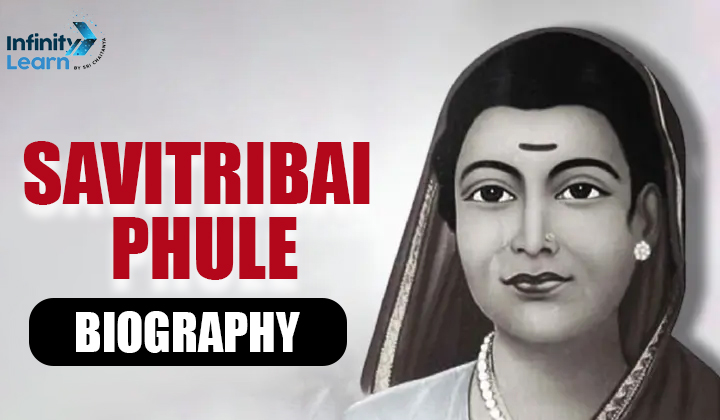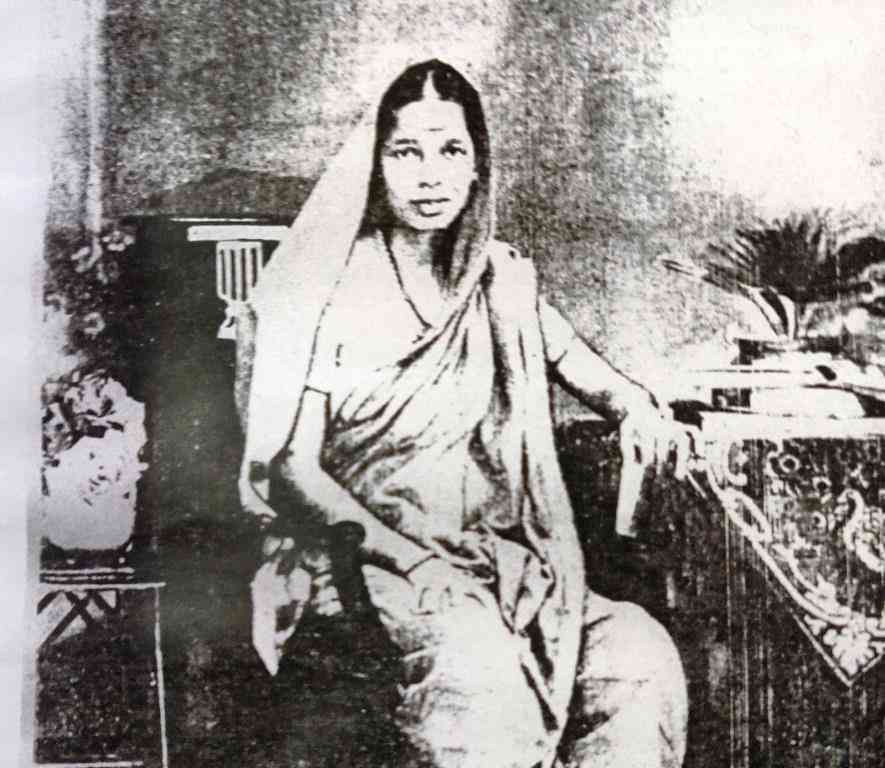Table of Contents
About Savitribai Phule
Savitribai Phule (1831-1897) was a pioneer Indian social reformer, teacher, and poet who worked hard to improve women’s rights and education in the 19th century. Born in Maharashtra, she is famous for starting the first school for girls in India with her husband, Jyotirao Phule. Savitribai fought against unfair treatment based on gender and caste, and her efforts helped pave the way for the women’s rights movement in India. She is remembered for her important contributions to education and social justice.
| Name | Savitribai Phule |
|---|---|
| Born | 3 January 1831 in Naigaon, Bombay Presidency, British India (present-day Maharashtra, India) |
| Died | 10 March 1897 in Pune, Bombay Presidency, British India (present-day Maharashtra, India) at the age of 66 |
| Occupation | Teacher, activist, social reformer |
| Known for | Promoting girls’ education and women’s emancipation |
| Organizations | Associated with Satya Shodhak Samaj |
| Notable work | Authored Bavankashi Subhodh Ratnakar |
| Spouse | Jyotirao Phule |
Savitribai Phule Biography: Early life
Savitribai Phule was born on January 3, 1831, in Naigaon, a small village in the Satara district of Maharashtra, India. She belonged to the Mali community, which was considered a lower caste. Savitribai was married at the age of nine to Jyotirao Phule, who later became a prominent social reformer. Despite the social norms of the time, Jyotirao encouraged her to pursue education and become a teacher.
Savitribai Phule Education
Savitribai Phule’s journey in education began under the guidance and support of her husband, Jyotirao Phule. She was educated at home by Jyotirao and his friends, who recognized her keen intellect and potential. Savitribai’s thirst for knowledge and her determination to learn led her to become one of the first Indian women to gain formal education. This education not only empowered her but also ignited her passion for teaching and social reform, eventually leading her to establish the first school for girls in India.
Savitribai Phule Biography: Personal life and Family
Savitribai Phule was born on January 3, 1831, in Naigaon, Maharashtra, to a farming family. Her father’s name was Khandoji Nevase Patil, and her mother’s name was Lakshmi. Savitribai was the eldest of their three children, having two younger siblings.
At the age of nine, Savitribai was married to Jyotirao Phule, who was then 13 years old. Jyotirao, also known as Mahatma Phule, was a prominent social reformer, and together, they worked tirelessly to promote education and fight social injustices. The couple did not have any biological children, but they adopted a son named Yashwantrao. Savitribai and Jyotirao’s partnership was a significant force in their efforts to improve the lives of women and lower-caste individuals in Indian society.

Savitribai Phule Biography: Career
Savitribai Phule’s career was dedicated to advancing education and social reform in India. In 1848, she co-founded the first school for girls in Pune with her husband, Jyotirao Phule, becoming one of India’s first female teachers. She played a key role in teaching and training other women to become educators. Over the years, she established several more schools, advocating for the education of girls and marginalized communities.
In addition to her work in education, Savitribai was actively involved in various social reforms. She fought against child marriage, supported widow remarriage, and provided shelter for widows and pregnant rape victims. Her efforts were instrumental in challenging societal norms and improving the status of women and oppressed groups in India.
Savitribai Phule’s career is marked by her unwavering commitment to education and social justice, making her a pioneering figure in India’s history.
Savitribai Phule Images

Savitribai Phule Fight Against Social Evils
Savitribai Phule’s fight against social evils was a cornerstone of her life’s work, addressing some of the most pressing issues of her time. She campaigned vigorously against child marriage and the practice of Sati (widow burning), both of which were deeply entrenched in society. By advocating for the remarriage of widows and opposing these practices, she sought to protect women’s rights and dignity.
A significant part of her efforts was focused on uplifting the downtrodden castes, particularly the Dalits, who faced severe discrimination and oppression. Savitribai, along with her husband Jyotirao Phule, worked tirelessly to provide educational opportunities for these marginalized communities, believing that education was a powerful tool for social change.
In 1873, Savitribai and Jyotirao Phule established the Satyashodhak Samaj (Society of Seekers of Truth), an organization dedicated to social reform. The Samaj aimed to promote equality and fight against the caste system, championing the rights of oppressed groups and advocating for a more just and equitable society.
Savitribai Phule Death
Savitribai Phule passed away on March 10, 1897. During her final days, she was actively helping people who were affected by a plague epidemic in Pune. Despite the risks, she and her son, Yashwant, worked tirelessly to care for the sick. Sadly, she contracted the plague herself while serving others and succumbed to the illness. Savitribai’s death was a testament to her lifelong dedication to helping those in need and fighting for social justice. Her selfless actions and contributions continue to be remembered and celebrated.
Savitribai Phule Biography: Legacy and Impact
Savitribai Phule established India’s first girls’ school in 1848, breaking societal norms and paving the way for women’s education. Known as the “Mother of Indian Feminism,” she and her husband, Jyotirao Phule, also fought against child marriage, Sati, and caste discrimination. They founded the Satyashodhak Samaj to promote justice and equality.
Her legacy continues to inspire India today, as her fight for education and social justice remains relevant in addressing ongoing gender and caste inequalities. Savitribai’s commitment to empowerment and equality serves as a beacon for progress.
FAQs on Savitribai Phule Biography
Who was the first teacher of India?
Savitribai Phule is considered the first female teacher of India. She opened the first school for girls in Pune in 1848 and dedicated her life to educating women and fighting against social injustice.
Why is Savitribai Phule so famous?
Savitribai Phule is famous for being a pioneering educator, social reformer and poet who fought against caste discrimination and for women's rights in 19th century India. She opened the first school for girls in Pune and worked tirelessly to educate women and end social injustice.
Who is Savitribai Phule?
Savitribai Phule (1831-1897) was a social reformer, educationist and poet who played a pivotal role in improving women's rights in 19th century India. She opened the first school for girls in Pune and worked alongside her husband Jyotirao Phule to fight against caste discrimination and promote education for all.
Which American missionary trained Savitribai Phule?
Savitribai Phule was trained by American missionary Cynthia Farrar to become a teacher. Farrar helped establish the first girls' school in Pune in 1848, with Savitribai as its first teacher.
How did Savitribai Phule die?
Savitribai Phule died in 1897 after contracting plague while caring for patients. She had dedicated her life to social reform and education, opening schools for girls and working to end caste discrimination. Her death was a tragic loss for the cause of women's rights and social justice in India.
Is Savitribai Phule a freedom fighter?
While Savitribai Phule was not directly involved in India's independence movement, she was a pioneering social reformer who fought against injustice and for women's rights in 19th century India. Her work laid important groundwork for the independence movement by challenging social inequalities and promoting education and empowerment of women and marginalized groups.
How many schools did Savitribai Phule open?
Savitribai Phule opened the first school for girls in Pune in 1848. Over the course of her life, she and her husband Jyotirao Phule opened a total of 18 schools for girls from lower caste and untouchable communities in Pune. Their schools provided education to thousands of girls who had previously been denied access to education.








